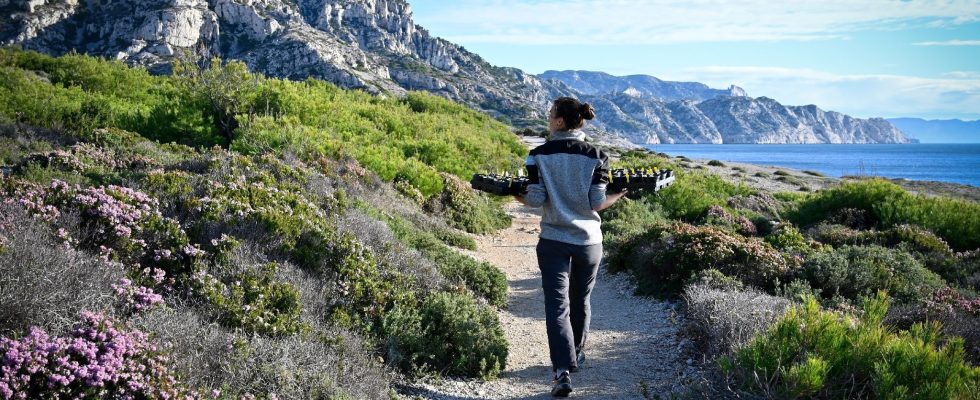First destination in the world in 2022, France is faced with the overcrowding of its tourist places. To help players in the sector, the government presented a plan on Sunday June 18 to regulate the flows that overwhelm tourist sites at certain times of the year, considering that they “sometimes constitute a threat” for “the environment. , the quality of life of residents and the tourist experience of customers”.
To better analyze the phenomenon, a “national observatory of major tourist sites” will see the light of day, announced Olivia Grégoire, the Minister Delegate for Tourism, in an interview with Figaro. Also a practical guide defining the concepts of “overtourism”, “overcrowding” and “peaks of frequentation” will be written, in order to have a common analysis grid. A communication campaign will encourage “a ‘four season’ tourism better distributed over all territories” but also to “adopt good practices” in terms of “energy, water and waste management”. A working group will be created with influencers so that they do not encourage the massive frequentation of tourist sites, such as Mont-Saint-Michel, Etretat or the creeks of Marseille, and make their audience aware of the impact of this. this.
“Overtourism”, “hypertourism”, “overtourism” or “tourismophobia”: these terms designate “real or supposed saturation phenomena” linked to tourist overcrowding, says in a recent report the Alliance France Tourisme, which brings together tourism professionals sector (Accor, Belambra, ADP, SNCF, Pierre et Vacances, etc.) and offers ways of regulation. For Simon Thirot, consultant in charge of tourism and leisure for the consulting firm Eurogroup Consulting, “we should rather speak of peaks in attendance, and there is good news: these are limited in time and space. By looking closely and in a fairly fine way, we can find solutions,” he told AFP.
“There is no miracle solution for all territories, but once we know exactly who is coming and when, we can have territorial marketing strategies, such as no longer communicating on the high season, or pricing , with very low off-season rates to encourage visitors who are nearby to come at other times,” he explains.
“Extend the tourist territory”
Because “de-seasonalizing the activity” of tourism also means creating jobs that are more sustainable than seasonal jobs, underlines Simon Thirot. In France, according to the government, 80% of tourist activity is concentrated in 20% of the territory. “There is a real effort to be made at the national level, to encourage people to discover other regions” than the Côte d’Azur or the coast of the Basque Country for example, “France is sufficiently rich in terms of landscapes, culture,” Didier Chenet, president of the Groupement des hôtelleries et restaurations de France (GHR), told AFP.
Among the solutions on which there is consensus: “extend the tourist territory” by encouraging tourists to go elsewhere than to congested sites, promote less frequented territories, enhance them with new itineraries and places to visit, a better offer of accommodation-catering, services, sums up the Alliance France Tourisme.
“Today, cruises on the canals in Burgundy and Dordogne, wine tourism in Pays-de-Loire or visits to the Beauval zoo are developing, coupled with visits to the Loire castles…” says Didier Chenet. More restrictive measures are also being tested, such as the introduction of taxes, entry fees or daily quotas: at the gates of Marseille, a summer reservation has been set up for five years at the Calanque de Sugiton, and the national park is considering limiting attendance on the Frioul islands.
“We must protect fragile environments, we have lost 30% of biodiversity in 25 years, but what I have seen on a daily basis for more than 25 years is that we have above all 90% of our territories which are under- tourism most of the year,” Didier Arino, managing director of Protourisme, told AFP. “To allow flows to spread out in space and time, we need a real tourism development strategy in our territories,” he concludes.
